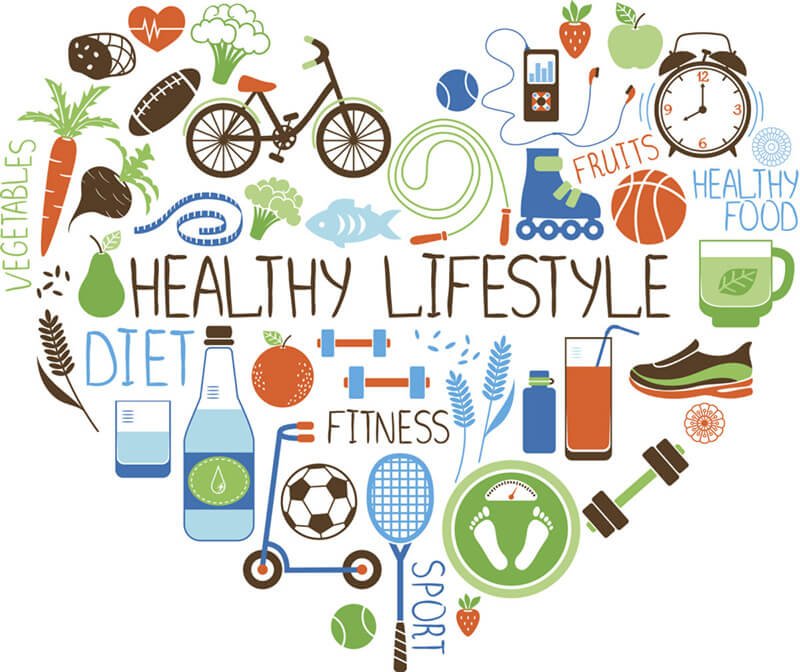Introduction: When Food Becomes the Enemy
Food is supposed to nourish us, give us energy, strengthen immunity, and promote long life. But in today’s fast-paced world, many people rely on processed foods, sugary drinks, and fried snacks as their daily meals. This shift in eating patterns has created a silent health crisis worldwide. The wrong diet doesn’t just lead to weight gain—it weakens immunity, damages the heart, disrupts hormones, clouds the mind, and increases the risk of chronic diseases.

We often underestimate how much our diet affects our health. Skipping vegetables, eating too much sugar, or living on junk food doesn’t just harm the body temporarily—it creates long-term damage. To be truly healthy, we must understand the negative effects of unhealthy diets and why choosing the right foods is essential.
The Biological Impact of a Wrong Diet
Every organ in the human body relies on nutrients to function. When you eat a nutrient-poor diet, the body begins to break down.
- Excess sugar spikes insulin, leading to insulin resistance and type 2 diabetes.
- Unhealthy fats (trans fats and hydrogenated oils) clog arteries and increase inflammation.
- Low fiber intake slows digestion and harms gut bacteria.
- Vitamin and mineral deficiencies weaken immunity and bone strength.
Simply put: a bad diet equals bad health. The connection is undeniable.
How an Unhealthy Diet Affects Physical Health
1. Obesity and Weight Gain
One of the most obvious effects of a wrong diet is obesity. Ultra-processed foods, fast foods, and sugary drinks are high in calories but low in nutrients. They overload the body with energy but starve it of vitamins, minerals, and antioxidants.
2. Heart Disease
Heart disease remains the number one killer worldwide, and the wrong diet is a major contributor. Diets rich in fried foods, trans fats, and high sodium increase cholesterol, raise blood pressure, and harden arteries. Studies link junk food consumption to strokes, heart attacks, and early death.
3. Diabetes
Consuming excessive sugar, white bread, and sweetened beverages increases the risk of type 2 diabetes. These foods spike blood sugar levels and wear down insulin sensitivity, creating lifelong metabolic issues.
4. Digestive Problems
A diet lacking in fiber (from vegetables, fruits, and whole grains) causes constipation, bloating, and poor gut health. Processed foods feed harmful bacteria in the gut, leading to inflammation, obesity, and weakened immunity.
5. Weak Bones and Muscles
When the diet lacks calcium, vitamin D, and protein, bones become fragile and muscles weaken. Long-term poor diet increases risks of osteoporosis, fractures, and muscle loss.
The Mental and Emotional Consequences of a Wrong Diet
Food affects not only the body but also the mind. Research shows that bad eating habits negatively impact mental health.
- Diets high in sugar and processed foods increase risks of depression and anxiety.
- Lack of omega-3 fatty acids reduces brain function and memory.
- Vitamin B deficiencies harm concentration and mood.
- Poor gut health, caused by a wrong diet, affects the brain through the gut-brain axis.
This means that eating junk food doesn’t just hurt the body—it also hurts happiness, productivity, and emotional stability.
Long-Term Risks of an Unhealthy Diet

The wrong diet creates silent killers that develop over years. Some of the long-term consequences include:
- Hypertension (high blood pressure) from excessive salt intake.
- Cancer risks, especially colon and stomach cancer, linked to processed meats and low-fiber diets.
- Liver disease from excess alcohol and fatty foods.
- Kidney disease caused by high sodium and processed protein diets.
- Early aging due to lack of antioxidants and excessive oxidative stress.
A poor diet is not just about short-term fatigue—it can shorten lifespan.
Processed Foods: The Biggest Threat
Processed and ultra-processed foods are the most dangerous components of the modern diet. They include packaged snacks, fast food, sugary cereals, frozen meals, and soft drinks.
- High sugar content damages metabolism.
- Artificial additives disrupt hormones.
- Unhealthy oils clog arteries.
- Low nutrient density leaves the body starving for vitamins despite high calorie intake.
Eating too many processed foods creates what experts call “hidden hunger”—caloric excess but nutrient deficiency.
How the Wrong Diet Affects Children
Children are especially vulnerable to the effects of unhealthy diets. A child who grows up eating junk food risks:
- Poor growth and development
- Obesity and type 2 diabetes
- Weakened immunity
- Poor academic performance due to lack of concentration
This makes nutrition for children one of the most critical health issues today.
Emotional Eating and the Wrong Diet
Many people don’t eat out of hunger—they eat out of stress, sadness, or boredom. This emotional eating often involves sugary and fatty foods that temporarily comfort but cause long-term harm. Emotional dependence on junk food leads to weight gain, guilt, and worsening mental health.
Cultural and Social Influence on Bad Diets
Marketing and modern lifestyles push unhealthy foods as “convenient” and “fun.” Fast food chains, sugary drinks, and packaged snacks are aggressively advertised, making them seem normal. This cultural shift is one reason why lifestyle diseases are rising globally.
The Economic Cost of a Wrong Diet
Unhealthy eating doesn’t just harm individuals—it burdens healthcare systems. Treating obesity, diabetes, and heart disease costs billions annually. By contrast, adopting healthy eating habits is one of the most cost-effective ways to prevent disease.
Breaking Free: How to Reverse the Damage

The good news is that the damage from an unhealthy diet can often be reversed by adopting healthy nutrition habits:
- Eat more whole foods: fruits, vegetables, whole grains, legumes.
- Replace sugary drinks with water or herbal teas.
- Choose healthy fats (olive oil, nuts, avocado) instead of fried foods.
- Add probiotics (yogurt, kefir, fermented foods) to restore gut health.
- Practice mindful eating to avoid overeating.
Over time, these changes lower disease risks and restore vitality.
Food Can Heal or Harm
Your diet is the most powerful medicine—or the slowest poison—you consume daily. The wrong diet hurts your health by damaging the heart, weakening the brain, disrupting digestion, and increasing chronic disease risks. But with conscious choices, you can turn food into a source of healing.
Choosing a balanced, nutrient-rich diet is the single most important decision for a healthier, longer, and happier life. Remember, every bite is either an investment in your well-being or a debt your body will pay later.
